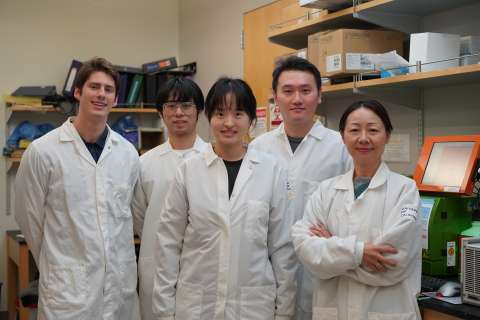A new study finds that different types of positive childhood experiences (PCEs) – defined as having supportive relationships and nurturing environments – are strongly associated with improved mental and physical health in adulthood. The study, conducted by UCLA Health, suggests that these experiences might be especially protective against the effects of early life adversity.
Using data from the Panel Study of Income Dynamics (PSID), researchers measured five different types of PCEs in 7,105 adults living across the United States, such as support from peers, school atmosphere, safety in the neighborhood, community support, and nurturing parental relationships.
Researchers then used statistical models to test how each of the five PCE types from childhood relates to overall health and various health conditions in adulthood.
When participants reported having strong peer relationships during childhood, a supportive school environment, and a neighborhood they felt safe in while growing up, they were less likely to report various health problems in adulthood, even for individuals who had experienced childhoods with more adversity. The strongest impact of these PCEs was on mental health outcomes.
Positive childhood experiences have long been seen as a way to protect against the health effects of childhood adversity, either by providing strong social supports to help counteract childhood hardships or by promoting health in their own right.
Decades of evidence have shown that various forms of childhood adversity and adverse childhood experiences (ACEs) harm health lifelong. ACEs are defined as significantly stressful or traumatic childhood events, and for this study, ACEs include a childhood history of experiencing neglect, abuse, or household challenges including having parents that were divorced or separated, witnessing intimate partner violence in the home, or having a parent with a mental illness or a substance use disorder.
Researchers found that PCEs were linked to better health outcomes, even in the face of the negative effect of adverse childhood experiences (ACEs) on adult health.
The study supports prior evidence that positive student-teacher relationships are associated with improved physical and mental health and less substance use. Supportive childhood peer relationships are also associated with lower depressive symptoms, and school connectedness in childhood shows a protective association against emotional distress, suicidal ideation, STI diagnosis, and substance use in adulthood.
“We’ve discovered that the strength of the relationship between PCEs and adult health conditions varies by the type of PCE – having a positive experience in school and feeling safe in one’s school and neighborhood appear to significantly improve mental and physical health outcomes in adulthood regardless of one’s exposure to adverse childhood experiences,” said Dr. Jaime La Charite, the study’s lead author, pediatrics and internal medicine physician and doctoral student in the UCLA Division of General Internal Medicine and Health Services Research and Fielding School of Public Health. “By implementing interventions to enhance school atmosphere, peer interactions, and neighborhood safety, we could potentially see a reduction in adverse mental and physical health outcomes throughout adult life.”
While the PCEs of supportive parenting relationships have been well-recognized as protective for health outcomes, the study authors suggest that because peer support, school climate, and neighborhood safety appear to be linked most strongly to improved adult health, it’s crucial to also invest in research and interventions in schools and neighborhoods during childhood to promote health lifelong. These interventions could improve the health of entire populations, even among those who have faced adversity and trauma.
Article: Specific domains of positive childhood experiences (PCEs) associated with improved adult health: A nationally representative study Published December 2023, Population Health, Volume 24, https://doi.org/10.1016/j.ssmph.2023.101558.
This research did not receive any specific grant from funding agencies in public, commercial, or not-for-profit sectors. Dr. La Charite received funding for her fellowship position from the National Clinician's Scholar Program and Cedars Sinai Medical Center. Dr. Schickedanz's time was supported by the Eunice Kennedy Shriver National Institute of Child Health and Human Development (K23HD099308). Drs. Schickedanz and Dudovitz received funding from the Health Resources and Services Administration (HRSA) of the U.S. Department of Health and Human Services (HHS) under award UA6MC32492, the Life Course Intervention Research Network. The information, content and/or conclusions are those of the authors and should not be construed as the official position or policy of, nor should any endorsements be inferred by HRSA, HHS or the U.S. Government.



